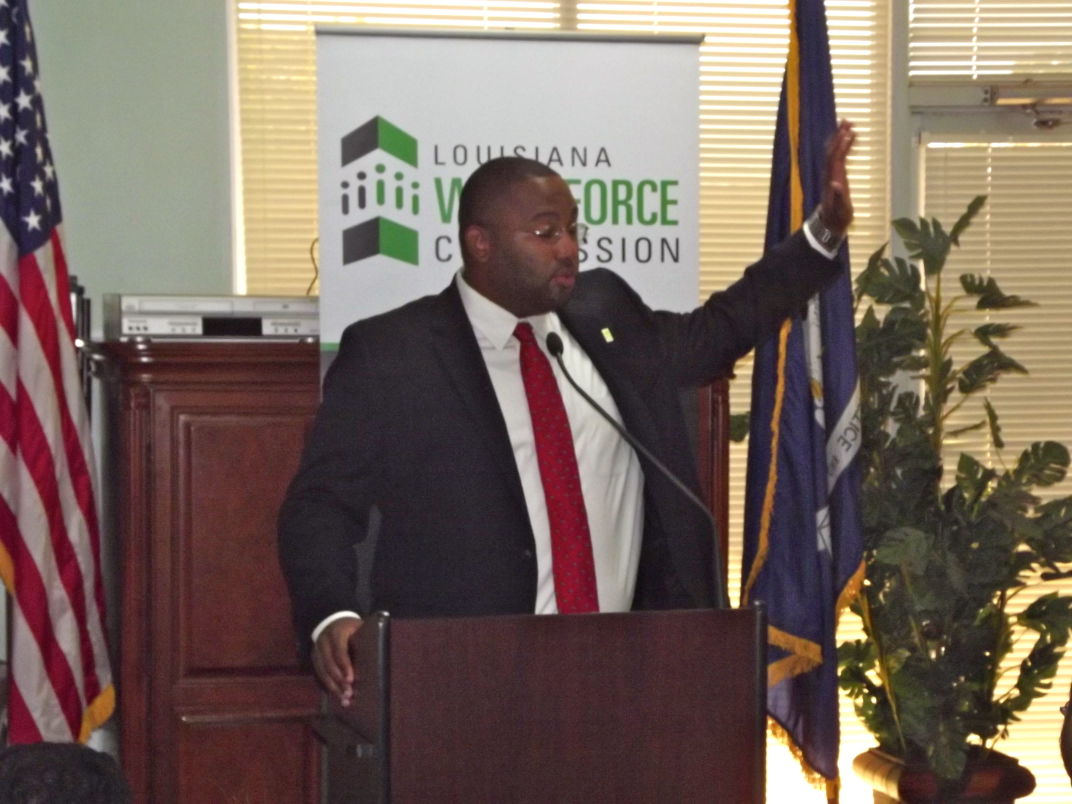
Local posting big-time season
November 11, 2014Momentive to spend $66M at Luling, Geismar sites
November 11, 2014It’s no secret that the bayou region has among the best unemployment rates in the country.
However, that doesn’t mean everyone who calls the bayou region home has a job.
Nor does it mean that our unemployed are any less important.
That’s why Oxfam America has teamed up with several local agencies including the Louisiana Workforce Commission and Fletcher Technical Community College to create the Bayou Region Workforce Training Pilot Program.
The pilot program aims to better connect 100 people who are minorities or women and are unemployed or underemployed in Terrebonne, Lafourche and the surrounding parishes with the immense workforce demands along the coast – especially those surrounding coastal restoration.
The Louisiana First Hiring Act of 2012 requires contractors for coastal restoration projects to submit information on the types of jobs anticipated and methods used to recruit local workers. That’s where Oxfam America comes in.
“The concept is we want to train local people to take on some of these jobs that are going to be happening near the coast in the foreseeable future not just in Terrebonne and Lafourche parishes but all across southern Louisiana,” Oxfam America Gulf Coast Policy Officer Telley Madina said. “We would recruit people for customized training and education to fit the criteria that’s needed for training through the Louisiana Workforce Commission, and they will be training through Fletcher Technical Community College.”
Terrebonne Parish President Michel Claudet said at a news conference announcing the initiative that parish government will do whatever it can to support the program.
“As we see the economy coming in and moving upward we need to make sure that all of our citizens participate, and we need a trained workforce in order to do that,” Claudet said. “We need to make absolutely certain that we benefit from this initiative,” he said.
The courses will not be typical secondary education classes, specializing in pipe fitting, welding and most specifically truck driving.
“Truck driving leads to what we consider to be stackable credentials, meaning that you can transition from truck driving into the heavy equipment operator once the company develops some level of trust with that particular individual,” Madina explained.
The pilot program is slated to begin Nov. 21. Classes will likely cost between $950 and $1,200, although precise figures have not been determined yet, according to Madina.
“Thanks to the efforts of so many people in our community, coastal restoration is finally ready to occur in our region. This important initiative is focused on ensuring much of this work will be performed by local residents. We believe this exciting opportunity will give hope to those who may feel left behind by our region’s economic boom,” Fletcher Chancellor Earl Meador said in an email to The Times.
There may only be about a 4 percent unemployment rate in the bayou region – leading the state for just about every month in the last 48 months and the nation in February, according to Claudet – but the opportunity to change the lives of some who have fallen through the cracks excites those spearheading the initiative.
“I’m so happy to reach out and get that group of people that we just don’t quite know how to get back in the system because it’s complex sometimes,” Meador said at the news conference. “That four percent plus a lot of others that we don’t even know are out there have given up. They don’t believe that there’s an opportunity for them coming in coastal restoration. They don’t believe that there’s a future for them… This is about going to those people, giving them a skill and putting them back in that workforce – giving them hope, changing their lives.”
A course taken in part-time hours can be completed in six weeks, and a full time course can be done as quickly as two weeks, according to Madina. However, he stressed that the program will make a strong effort to customize its schedule to each individual person’s needs.
“An individual can come in right away and have issues with background check or records who may already have experience, we may be able to get them a certificate more quickly,” Madina explained. “Some individuals may need help getting to work initially. Transportation may be an issue. There may be some literacy issues. Those are some things that we have to work on, and we’re trying to customize it to the people.”
Madina has begun a recruiting campaign for the program along with Trudy Hebert, advocate councilor of the Office of Workforce Development at the Urban League of Greater New Orleans, and Terrebonne Parish District 2 Councilwoman Arlanda Williams said she would personally help recruit students within the Houma and Thibodaux areas, according to Madina.
“We’re grateful to have a partner who has worked with us and met with us inside of Terrebonne consolidated government,” Madina said.
Those interested in enrolling in the program are asked to contact Hebert by phone at (985) 858-2897 or email at thebert@ubranleagueneworleans.org.
Oxfam America Gulf Coast Policy Officer Telley Madina discusses the importance of providing skills to those unemployed in the bayou region. The Bayou Region Workforce Training Pilot Program aims to provide just that.

Oxfam America Gulf Coast Policy Officer Telley Madina discusses the importance of providing skills to those unemployed in the bayou region. The Bayou Region Workforce Training Pilot Program aims to provide just that.










